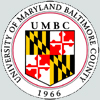| |||||||||||||||||||
Tips:  Range on the Protein: Protein ID Protein Position Domain Position: 
|
|---|
Weblogos are Copyright (c) 2002 Regents of the University of California
| DMDM_info@umbc.edu | 1000 Hilltop Circle, Baltimore, MD 21250 | Department of Biological Sciences | Phone: 410-455-2258 |




 C-terminal START domain of mammalian STARD9, and related domains; lipid binding. This subfamily includes the steroidogenic acute regulatory protein (StAR)-related lipid transfer (START) domains of mammalian STARD9 (also known as KIAA1300), and related domains. The START domain family belongs to the SRPBCC (START/RHO_alpha_C /PITP /Bet_v1/CoxG/CalC) domain superfamily of proteins that bind hydrophobic ligands. SRPBCC domains have a deep hydrophobic ligand-binding pocket. Some members of this subfamily have N-terminal kinesin motor domains. STARD9 interacts with supervillin, a protein important for efficient cytokinesis, perhaps playing a role in coordinating microtubule motors with actin and myosin II functions at membranes. The human gene encoding STARD9 lies within a target region for LGMD2A, an autosomal recessive form of limb-girdle muscular dystrophy.
C-terminal START domain of mammalian STARD9, and related domains; lipid binding. This subfamily includes the steroidogenic acute regulatory protein (StAR)-related lipid transfer (START) domains of mammalian STARD9 (also known as KIAA1300), and related domains. The START domain family belongs to the SRPBCC (START/RHO_alpha_C /PITP /Bet_v1/CoxG/CalC) domain superfamily of proteins that bind hydrophobic ligands. SRPBCC domains have a deep hydrophobic ligand-binding pocket. Some members of this subfamily have N-terminal kinesin motor domains. STARD9 interacts with supervillin, a protein important for efficient cytokinesis, perhaps playing a role in coordinating microtubule motors with actin and myosin II functions at membranes. The human gene encoding STARD9 lies within a target region for LGMD2A, an autosomal recessive form of limb-girdle muscular dystrophy. No pairwise interactions are available for this conserved domain.
No pairwise interactions are available for this conserved domain.










